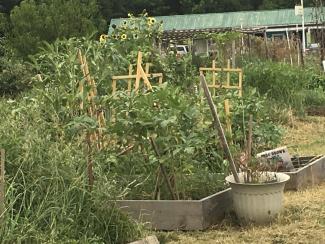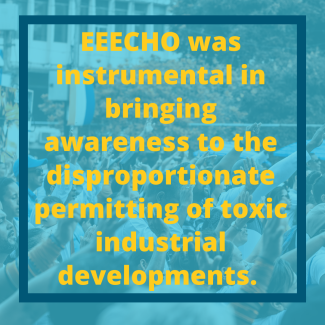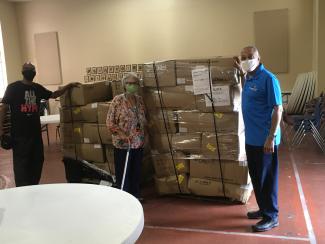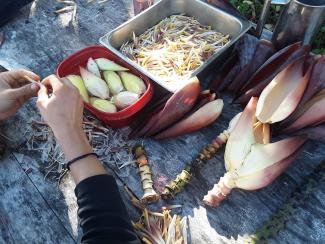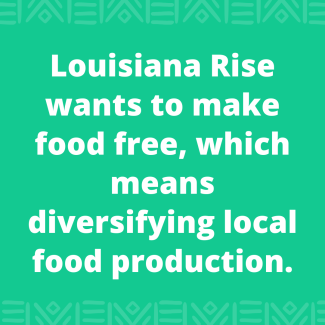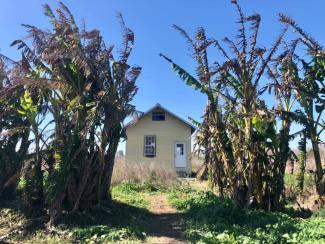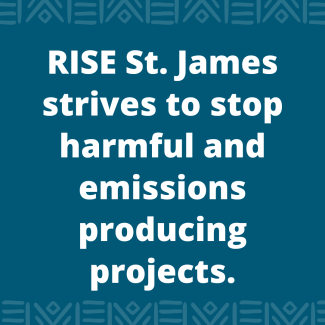2020 Deep South Spotlight Series
We are highlighting the dynamic work of 2020 BEA Fund grantees as part of a multimedia series that will include written features sent to our listserv, social media and here on the website.
Read about our BEA Fund Grantee Spotlight organizations below.
- Education, Economic, Environmental and Climate Health Organization (EEECHO)
-
Education, Economic, Environmental and Climate Health Organization (EEECHO) is a network of organizations and activists bolstering communities with a voice for self-reliance and the knowledge and skills to thrive. During the pandemic, EEECHO harnessed high media visibility in an effort to reach the overwhelming majority of the Mississippi communities they serve who do not have access to technology. They hosted Covid-19 safety trainings, distributed Covid-19 safety kits, donated over 150,000 masks, and were instrumental in advocating for Covid-19 testing and vaccinations to be accessible to those who are most at risk. EEECHO supported efforts by supplying Covid-19 safety kits for volunteers and making financial contributions for garden supplies and stipends for unemployed volunteers.
EEECHO was instrumental in bringing awareness to the disproportionate permitting of toxic industrial developments. These industrial developments exacerbate flooding within the vulnerable, historic African-American residential communities we serve. EEECHO also had significant participation in a 10 hour virtual Mississippi Department of Environmental Quality evidentiary appeals hearing on February 9, 2021. They supported the travel and lodging for community residents and expert witnesses to attend the appeals hearing in person in Jackson, Mississippi on April 23. As expected, MDEQ voted not to overturn their original decision. They already had a pro bono attorney on stand by and an appeal was filed in Harrison County Chancery Court on May 7.
- Louisiana Rise
-
Louisiana Rise is dedicated to bringing clean, renewable energy and a just transition to South Louisiana through education, advocacy, and outreach.
Louisiana Rise wants to make food free, which means diversifying local food production. A field that once grew only sugarcane for fuel ethanol now grows avocados, sweet potatoes, mulberries, bananas, beans, kale, figs, okra, watermelon, squash, turmeric, basil, broccoli, cabbage, collards, and produces food to raise catfish. The strategy is to amplify impact by producing and distributing not just food or medicine harvests, but the food and medicine plants themselves, thereby seeding not just one food forest but dozens, eventually hundreds.
While the pandemic has affected their work in a number of ways, Louisiana Rise has been able to create impact through online venues. For instance, they have worked to create fundraising film screenings, robust email outreach, and informational zoom calls. In some ways this era of Covid-19 allowed for them to respond to the disaster in a way that built deeper relationships with their existing network, while expanding to others as well.
- RISE St. James
-
RISE St. James strives to stop harmful and emissions producing projects. One of their major efforts is stopping plastics making companies from completing construction of harmful factories. With a team of lawyers they fought Formosa Plastics from building a factory on the banks of the Mississippi River in St. James, Louisiana. Formosa had violated the Clean Air and Clean Water Acts and were on their way to build a factory that would discharge toxic chemicals into the air and water, including New Orleans’ water supply. In addition, they stopped a Wanhua chemical product factory from being constructed.
RISE St. James looks forward to being more involved with the public when possible. Part of their goal is to educate the public on the dangers posed by these factories and how to reduce the risks to public health. They want to increase power in grassroots frontline communities and want to see stronger community connections.
